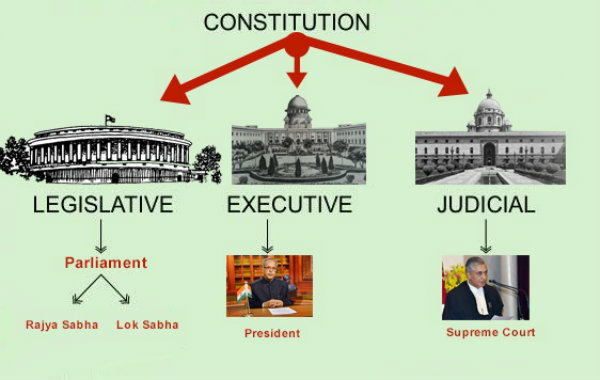Among all the three Organs, no one is superior to the other, and one cannot control the other, in any manner, but rather all three Organs need to work in harmony.
Article 50 of the Constitution separates the Executive from the Judiciary.
Article 53 (1) states that the executive power of the Union shall be vested in the President and shall be exercised by him either directly or through officers subordinate to him in accordance with this Constitution.
Further, the President, being the executive head of the country, is also empowered to exercise legislative powers in certain condition (Article 123).
Article 73 (a) states that the Parliament has power to make laws; and (b) to the exercise of such rights, authority, and jurisdiction as are exercisable by the Government of India by virtue of any treaty or agreement.
The function of the Judiciary is to Review the action of the legislature and the Executive.
Further, Article 121 states that no discussion shall take place in Parliament with respect to the conduct of any Judge of the Supreme Court or of a High Court in the discharge of his duties except upon a motion for presenting an address to the President praying for the removal of the Judge as hereinafter provided.
Article 122 (1) states that the validity of any proceedings in the Parliament shall not be called in question on the ground of any alleged irregularity of procedure.
However, there are some check and balance fabricated in the Constitution to balance the power among these three Organs.


No comments:
Post a Comment